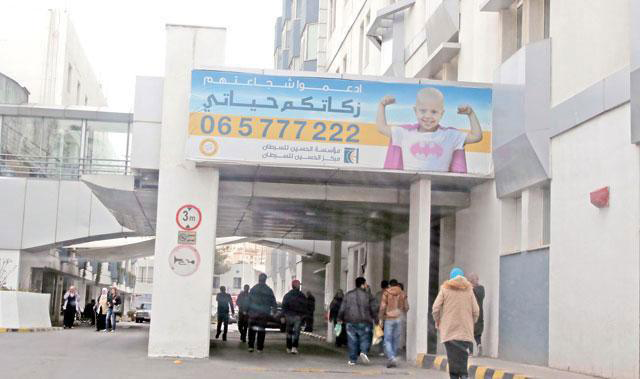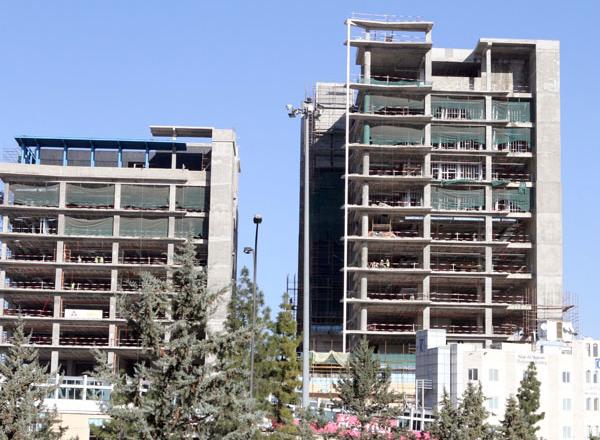You are here
Smoking, obesity linked to 40% of cancer cases in Jordan — health official
By Rayya Al Muheisen - Dec 26,2022 - Last updated at Dec 26,2022

Smoking accounts for 80 per cent of lung cancer cases and related deaths in Jordan, according to the King Hussein Cancer Foundation (File photo)
AMMAN — Although there are over 27,000 cancer patients undergoing treatment at the King Hussein Cancer Centre (KHCC), smoking cessation could reduce this number by 25 per cent, according to experts at the centre.
Speaking on Al Haqeeqa TV’s “Face the Truth” programme, Munther Hawarat, assistant director for Patients Affairs at the KHCC, said that 25 per cent of cancer cases in the Kingdom are “directly” caused by smoking.
“Obesity and smoking are some of the main causes of cancer, contributing directly to almost 40 per cent of detected cases in the Kingdom,” Hawarat added.
Smoking also indirectly contributes to the likelihood of developing cancer by reducing immunity and resilience, as well as decreasing the body’s nutrition and lowering metabolic level, he said.
Additionally, smoking accounts for 80 per cent of lung cancer cases and related deaths in Jordan, according to King Hussein Cancer Foundation’s (KHCF) Facebook page.
The KHCF added that the centre’s 27,000 patients constitute “the centre’s full capacity”.
“The KHCC receives almost 6,500 new cancer cases annually,” according to the KHCF.
Hawarat noted that the centre accepts almost 60 per cent of diagnosed cases.
Breast cancer is the most common form of cancer in Jordan, and is also considered “the easiest to detect”, Hawarat said, adding that there are awareness campaigns to educate women on how to self-diagnose.
Sixty per cent of cancers affect those over the age of 60. However, this means that there are significant percentages of cancer in other age groups that must also be diagnosed, he said.
“The key is early check-up and detection,” Hawarat added.
Abdel Rahman Shaher, former health director at the Ministry of Health, told The Jordan Times that cancer is caused by genetic changes that lead to uncontrolled cell growth and tumour formation.
Research shows that smoking, obesity and genetics are correlated to higher cancer risks, said Shaher.
According to Hawarat, lung cancer is difficult to detect, because patients don’t show early symptoms.
“When symptoms show, it indicates a huge growth of uncontrolled cells, and generally it is hard to treat,” said Hawarat.
Adapting to a healthy lifestyle, quitting smoking and reducing sugar intake and the consumption of foods that contain high saturated fats will “definitely” reduce a person’s chances of getting cancer, Shaher said.
Despite several attempts by The Jordan Times to contact the Ministry of Health and KHCF to get the most recent cancer statistics, they were unavailable for comment.
Related Articles
AMMAN — The King Hussein Cancer Centre (KHCC) provided healthcare services for 27,000 cancer patients in 2022, and received some 6,800 new p
AMMAN — Around 36 per cent of all diagnosed cancer patients in Jordan are under 50 years old, according to the King Hussein Cancer Foundatio
The year 2015 will be dedicated to the fight against smoking, according to HH Princess Dina Mired, director general of the King Hussein Cancer Foundation (KHCF).













